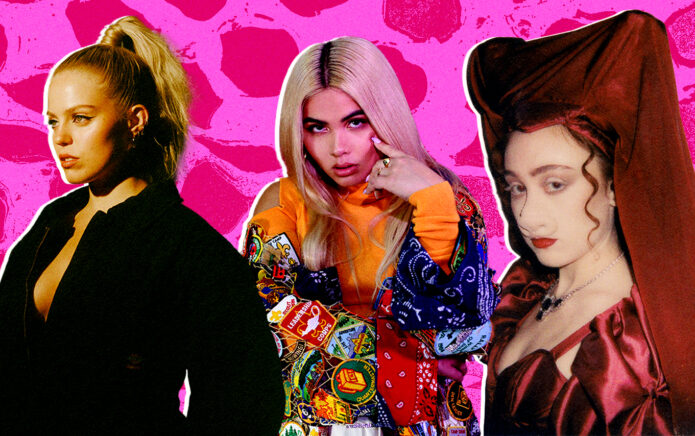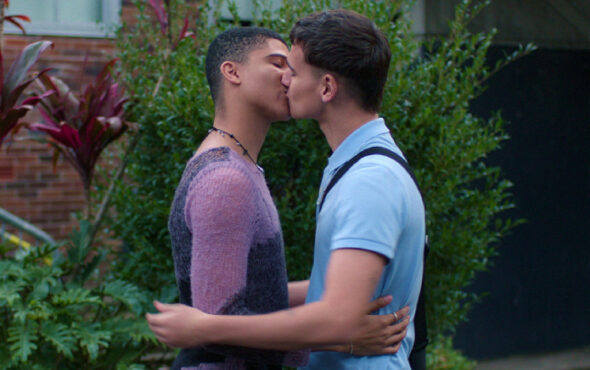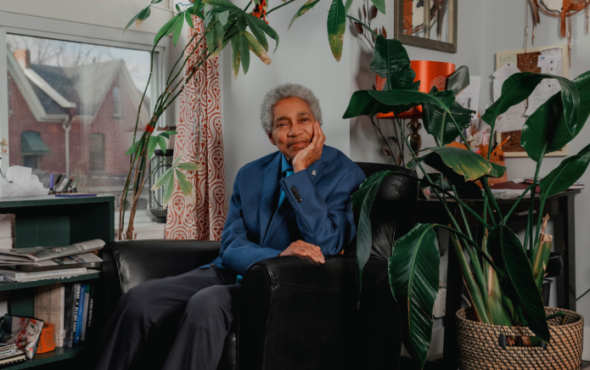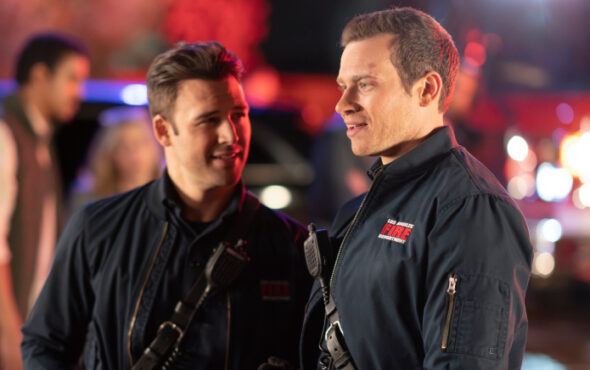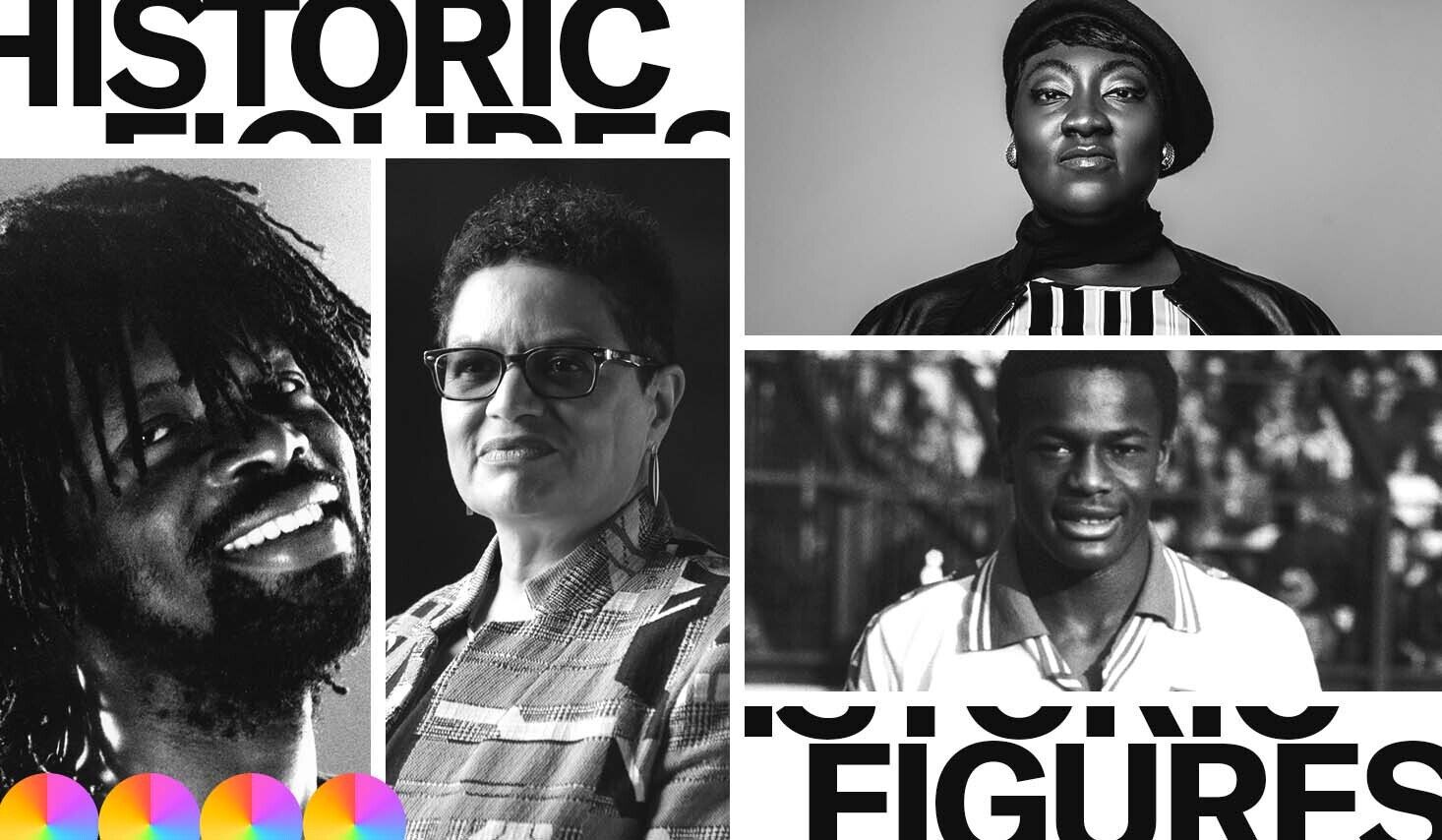
Black British LGBTQ+ figures can often be overlooked. Throughout history, Britain has given way to instrumental and influential icons that have helped pioneer to queer movement. Often many of us are familiar with the likes of American activist Marsha P. Johnson or prolific author James Baldwin, however, during Black History Month, GAY TIMES wants to spotlight British individuals that have helped further queer liberation by being themselves and showcasing the importance of individuality, self-expression, and visibility. Below you can read our list of 10 Black British LGBTQ+ figures that have shaped history and continue to do so.
Justin Fashanu
It has been over 30 years since footballer Justin Fashanu came out. Fashanu was known for his incredible skills and most notably becoming the country’s most expensive player in 1981 with an estimated value of 1 million. Already an influential figure in the sporting world, things changed when the professional athlete came out as gay in 1990. Fashanu tragically took his own life in 1998, but his impact in the sporting world has remained. In 2020, the professional footballer was inducted into the Hall of Fame. The award recognised his impressive 19-year career playing across Norwich City, Notts County and Nottingham Forest.
In honour of his memory, the Justin Fashanu Foundation was launched by Amal Fashanu, in 2019, to tackle mental health, racism and homophobia in sports.
View this post on Instagram
Jackie Kay
Jackie Kay is an award-winning Scottish poet, playwright and novelist. She published a range of plays and two novels in the 1980s. Her first collection of poems, The Adoption Papers, received critical acclaim landing her the Saltire Society Award and Scottish Arts Council Book Award. While identifying as a Black Scottish lesbian, Kay has worked to avoid categorisation as a creative based on these factors and has worked across various literary genres and styles. Kay is currently teaching as a Professor of Creative Writing at the University of Newcastle and was awarded an MBE for services to literature in 2006.
View this post on Instagram
Paul Danquah
A British filmmaker, Paul Danquah is most commonly known for his acting debut in A Taste of Honey (1961); an adaption from a 1985 play with the same title. Danquah went on to appear in various projects, including presenting a BBC Two series in 1966 and, later, is believed to become the first Black presenter of a children’s programme in the UK, according to The Guardian. Outside of his acting work, Danquah moved to the U.S to study law and later established a career at the World Bank in 1986. Many of the late filmmaker’s projects included: That Riviera Touch (1966), Maroc 7 (1967) and Play school.
View this post on Instagram
Isaac Julien
A Turner prize-nominated artist, Isaac Julien is best known for his multi-screen art installations and distinguished films. Born in London, he graduated from Saint Martin’s School of Art in 1985. Julien helped launch several film initiatives such as cofounding the Sankofa Film and Video Collective in 1983. He was also a founding member of Normal Films in 1991.
The filmmaker came into mainstream prominence due to the success of his 1989 drama-documentary titled Looking for Langston, which explored the poetic intersection of Langston Hughes and the Harlem Renaissance. Julien also won the Semaine de la Critique prize for best film at the Cannes Film Festival in 1991. Much of the artist’s work is tied to personal themes such as class, sexuality, race, and cultural history. Julien is now a professor of the arts at UC Santa Cruz.
View this post on Instagram
Rotimi Fani Kayode
Born in Nigeria, Kayode and his family were forced to flee their home country for Britain in 1966 due to the outbreak of civil war. As an artist and photographer, Kayode is best recognised for how his work explores sexuality, masculinity, and race. Often opting for the form of portrays, Kayode presents striking portraits delicates explored notions of rejection, his sense of otherness, ancestry and more. In 1984, Kayode started to feature his work in numerous exhibitions and continued to do so until he died in 1989. Kayode was only 34 when he died from a heart attack following an Aids-related illness. Since his death, his legacy has been preserved in posthumous exhibitions such as the Barbican’s Masculinities: Liberation through Photography last year.
View this post on Instagram
Cecil Belfield Clarke
A Barbadian-born physician, Cecil Belfield Clarke was an exceptional academic. At a young age, Clarke won the island’s scholarship in Natural Science which enabled him to travel to the UK in 1914. Clarke opened a medical practice which he ran for nearly 50 years after completing his training at University College Hospital in London.
Alongside his medical efforts, Clarke was one of the founders of the civil-rights organisation the League of Coloured Peoples, which began in 1931. As an activist, Clarke supported this cause, including hosting for American sociologist W. E. B. Du Bois and co-founder of the National Association for the Advancement of Colored People (NAACP) visited London in 1945. Clarke continued with his work and was elected to the Council of the British Medical Association as representative for the West Indies. Later, he was assigned the post of Senior Medical Officer in Ghana, which had newly become independent.
View this post on Instagram
Lady Phyll
Phyll Opoku-Gyimah aka Lady Phyll is a co-founder of UK Black Pride, a political activist, and executive director of the LGBTQ+ non-profit Kaleidoscope Trust. Lady Phyll has long been an advocate for LGBTQ+ causes, race and gender issues. Speaking to GAY TIMES, she explained the significance of Black History Month: “Black History Month is an important time for Black people in Britain. We stand on the shoulders of giants, those who never backed down, who’ve fought tirelessly and who’ve paved the way for us to live openly and freely.
“A month dedicated to centring and celebrating such Black excellence is a welcome respite from the erasure we experience from society at large. And even though we’re working towards a society that doesn’t require a special month to be set aside in order for non-Black people to celebrate our place in this country’s ever-evolving narrative, I welcome the increased visibility and representation that Black History Month affords.”
View this post on Instagram
Valerie Mason-John
Previously existing under the stage name ‘Queenie’, at the beginning of her career, Mason-John quickly became an LGBTQ+ icon. She contributed, as co-author and editor, to the first books that documented African and Asian Lesbians in Britain. Mason-John was also a promoter for such shows as the National Lesbian Beauty and the National Drag King and Queen show. However, in 2005, she was ordained into the Triratna Buddhist Community. Since then, Mason-John has continued to publish literature and acts as a public speaker in the field of Mindfulness for addiction.
View this post on Instagram
Gina Yashere
Born in Bethnal Green, London, Gina Lyashere aka Gina Yashere is a British comedian. She has become a big name on the comedy circuit selling out shows, landing regular spots on panels, and now has a memoir out. The comedian made a name for herself in the UK before heading to the US for a fresh start — and she’s made it big. While away from the UK, Yashere has continued to push boundaries. She is the co-creator for Bob Hearts Abishola, which is the first American sitcom to feature a Nigerian family. Yashere recently spoke on the complexities of her identity and choice to come out with The Guardian: “I had come out to friends and family, but I’d never come out publicly in England because I didn’t want to give them something else to box me in with.”
View this post on Instagram
Andy Polaris
Andy Polaris rose to prominence as part of the British group Animal Nightlife in the 80s. He has continually used his platform to give a voice to LGBTQ+ and Black communities. Speaking with GAY TIMES, the star explained what it was like to grow up in the 80s. “People forget how homophobic and racist it was in the 80s,” he said. “People would actually say to you bluntly ‘you’re going to die of AIDS – this is going to happen to you.’” You can watch Andy’s full conversation with Omari Douglas here.
View this post on Instagram
